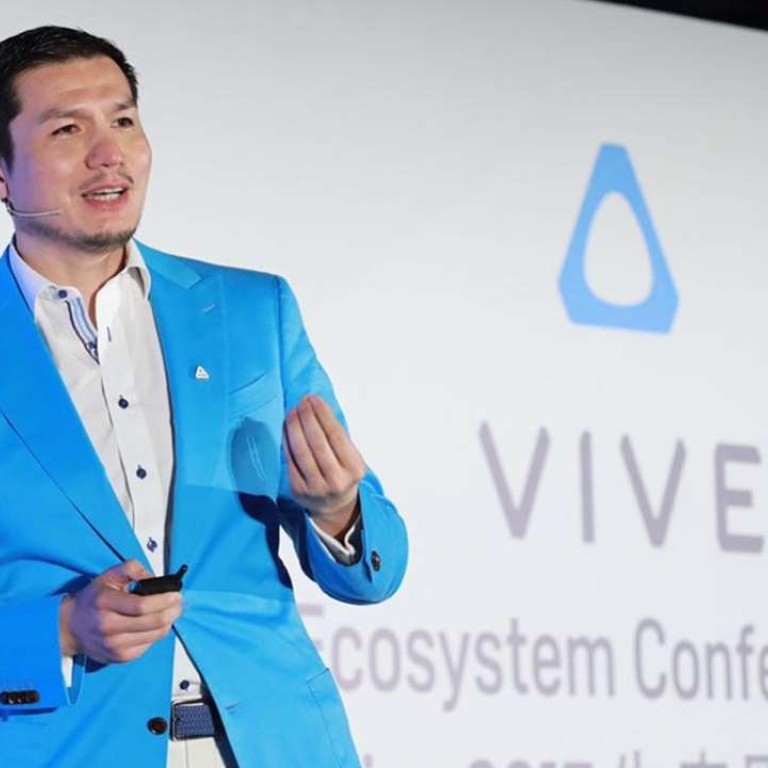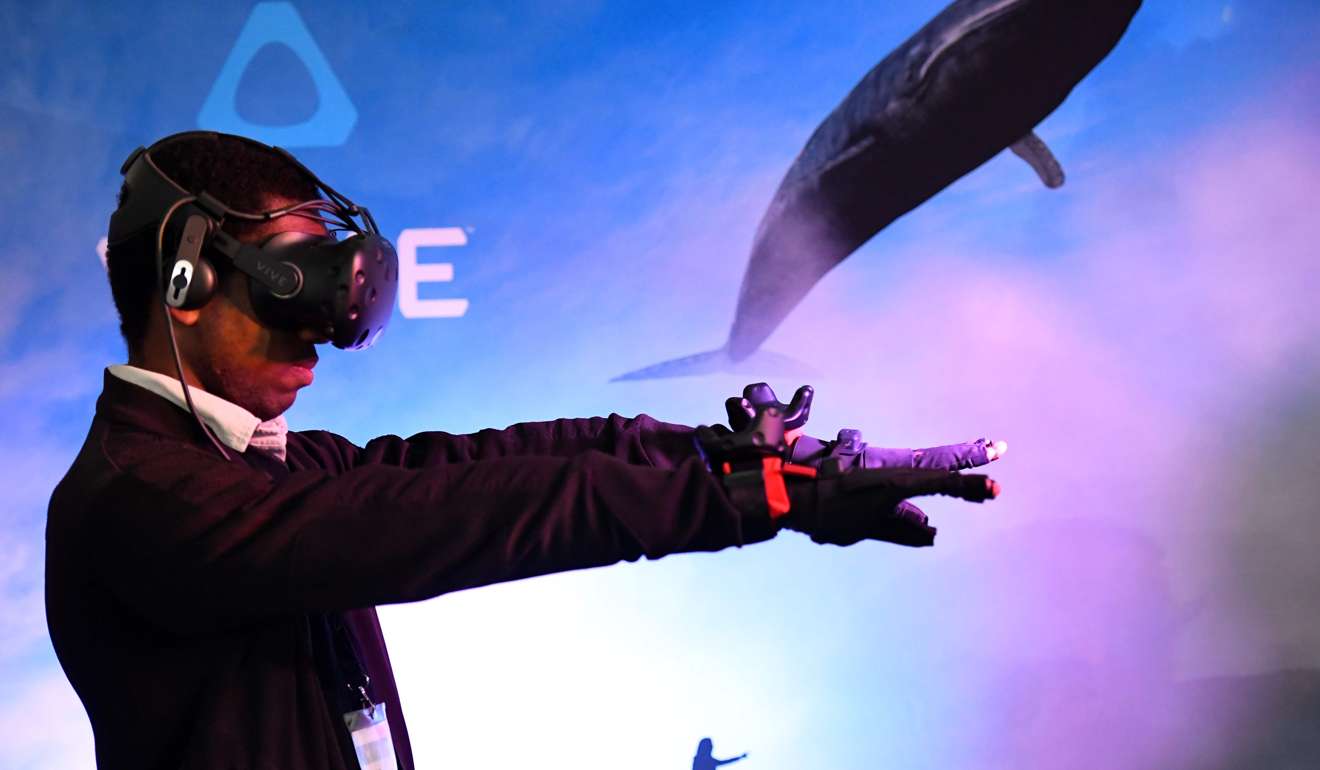
Taiwan’s HTC seeks fresh growth from virtual reality business
Struggling Taiwanese consumer electronics supplier HTC is pinning its hopes for a turnaround on the company’s nascent virtual reality (VR) business, as global demand for the technology could potentially rival that for smartphones, according to the head of its VR operation in China.
“VR is the industry we will still be talking about in the next 50 or 100 years,” Alvin Graylin, China president of HTC’s Vive virtual reality system, told the South China Morning Post. “It is not just me, as all the [HTC] executives are thinking the same way.”
Virtual reality immerses a user in an imagined world, with the aid of an opaque headset, such as HTC’s Vive and Google’s Daydream platform for Android smartphones.
Augmented reality (AR), meanwhile, provides an overlay of digital imagery onto the real world with the use of a clear headset like Microsoft’s HoloLens or an advanced smartphone that supports the technology, such as Lenovo’s Phab 2 Pro.
Graylin pointed out that global market demand for VR hardware and content is poised for steady growth over the next few years, which could catch up with the growth of the smartphone industry.
HTC launched its high-end Vive headset, which was co-developed with US-based video game company Valve Corp, in April last year.

While it has declined to provide sales figures for the headset, HTC claims that the US$800 VR headset is now selling at a profit.
The company’s Vive business, however, remains at an investment stage, Graylin said.
Founded in 1996, HTC started out as a contract designer and manufacturer of personal digital assistants and smartphones. The company launched its own branded smartphone business in 2006, which had a peak global market share of 10.3 per cent in mid-2011.
The company posted its first-ever loss in 2013 due to intense industry competition, which led to a restructuring of its business in 2015.
In a report last month, Daiwa Capital Market analysts said HTC’s “return to profitability seems unlikely in the near term” due to intense competition in the smartphone market.
HTC’s VR revenue, however, was forecast by Daiwa analysts to reach NT$17.3 billion (US$572.6 million) this year from an estimated NT$10.8 billion last year.
Earlier this month, HTC announced the sale of a land site and plant in Shanghai for 630 million yuan (US$81.1 million) as part of a restructuring. Graylin denied media reports which speculated the sale was to fund its VR development.
Graylin said HTC’s VR business segment works independently from its smartphone operations.
The company claims to have more than 20,000 developers on its VR platform, with about 23 per cent from the mainland.
On Monday, HTC and the Shenzhen municipal government announced a strategic partnership to set up an International VR Research Institute in the city.
Total worldwide shipments of AR and VR devices for the enterprise and consumer markets are predicted to reach 99.4 million units in 2021, up nearly tenfold from 10.1 million last year, according to a report this month by technology research firm IDC.
“With all the technological enhancements, there will be a wide range of products and price points,” said Jitesh Ubrani, a senior research analyst for IDC’s mobile device trackers. “VR setups already range from sub-US$100 to more than US$1,000.”
IDC forecast AR headsets to bring in significantly more revenue in the near term, growing to US$48.7 billion in 2021 from US$209 million last year.
The global market for VR headsets, meanwhile, are predicted to reach US$18.6 billion in 2021 from an estimated US$2.1 billion last year.
“Many Chinese companies are also moving into the AR and VR market, so it will become increasingly competitive,” said Kitty Fok, the managing director of IDC China.

